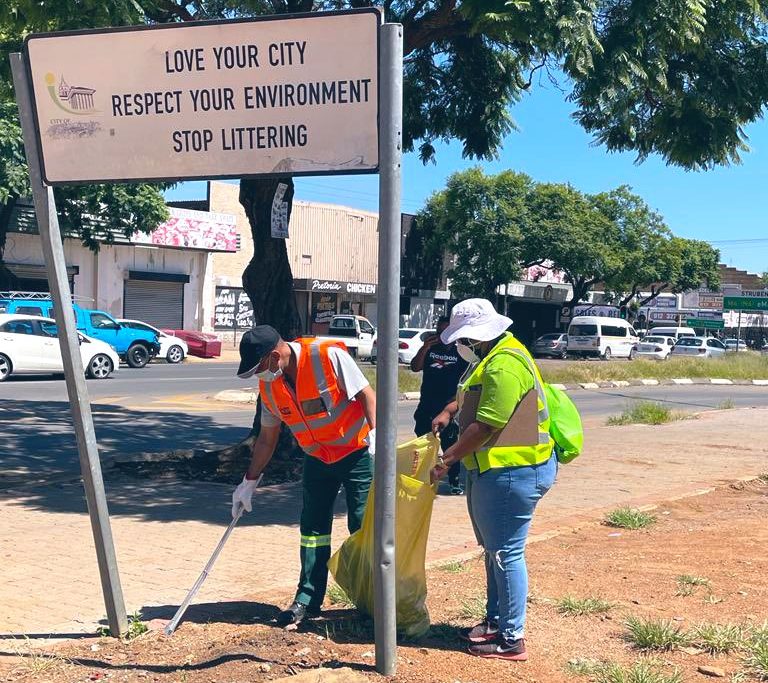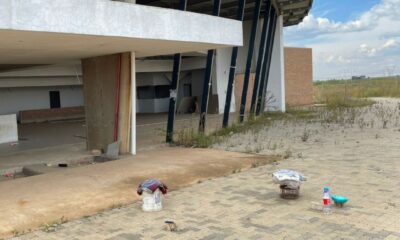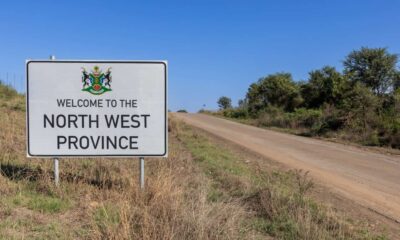News
City vs Citizens? Tshwane Accused of Blocking Volunteer-Led Service Delivery

When residents fix potholes and cut grass, you’d think the city would thank them. Instead, some say they’re being fined, threatened, and stopped in their tracks.
The City of Tshwane is facing fierce backlash from civil society and opposition parties after it was accused of actively undermining community-led service delivery efforts, including projects to fix potholes, clear stormwater drains, and cut public grass.
The row has been sparked by complaints from AfriForum, the Freedom Front Plus (FF Plus) and former Tshwane mayor Cilliers Brink (DA), who say the current ANC-EFF-ActionSA coalition running the capital is punishing residents for stepping in where government fails.
“Government Is Part of Society, Not Above It”
Cilliers Brink, now leader of the DA, argues that instead of working against residents, the municipality should embrace citizen-driven solutions, especially during a time of financial crisis and service collapse in many parts of Tshwane.
“Government must realise it is part of society and doesn’t dominate society,” Brink said.
“When we were in office, we formalised community upliftment projects where residents could sign agreements with the city to fix street lights, cut grass, and clean public spaces.”
One such project, the Moot Project and a cooperation agreement with AfriForum allowed communities to take care of their surroundings under city oversight. Brink says these efforts not only uplift neighbourhoods but also preserve property values and relieve pressure on overstretched municipal resources.
AfriForum: “We’re Treated Like Criminals for Helping”
AfriForum’s Greater Pretoria South coordinator, Arno Roodt, says things changed under the new administration. Instead of cooperation, their volunteers have been stopped by metro police, fined, and even threatened with arrest, simply for clearing sidewalks, filling potholes, or cutting overgrown grass.
“The city has placed itself in opposition to its own residents,” said Roodt.
“When a municipality not only fails to deliver but punishes those who try to help, the entire idea of local government is undermined.”
He cites Section 152(1)(e) of the Constitution, which compels municipalities to promote, not hinder community participation in service delivery.
FF Plus Blames Political Spite
FF Plus councillor Grandi Theunissen didn’t mince words, accusing the ruling coalition of “political sabotage” and calling their behaviour anti-democratic and punitive.
“Instead of embracing Ubuntu and shared responsibility, the coalition responds with legal intimidation and punitive policies. This is a governing bloc that fears accountability and resents excellence,” said Theunissen.
He called for local and national authorities to formalise frameworks that support—not restrict—citizen-led service delivery efforts.
A Broader Fight Over Civic Space
This isn’t the first time such tensions have flared. Across South Africa, similar battles are playing out between overstretched municipalities and civic organisations stepping in to fix basic infrastructure. The clash raises a broader question: Who owns public space and who is allowed to fix it when government can’t or won’t?
In Pretoria’s case, the dispute has become a litmus test for how governments engage with active citizens. Will they be embraced as partners or targeted as threats?
South Africa’s Constitution encourages community participation in local government. Yet in Tshwane, residents trying to live that principle say they’re being punished.
What began as potholes and grass is now a political war over ownership, trust, and accountability. And until the City finds common ground with its citizens, the people of Tshwane may find themselves not just dodging potholes, but battling red tape too.
{Source: The Citizen}
Follow Joburg ETC on Facebook, Twitter , TikTok and Instagram
For more News in Johannesburg, visit joburgetc.com



























